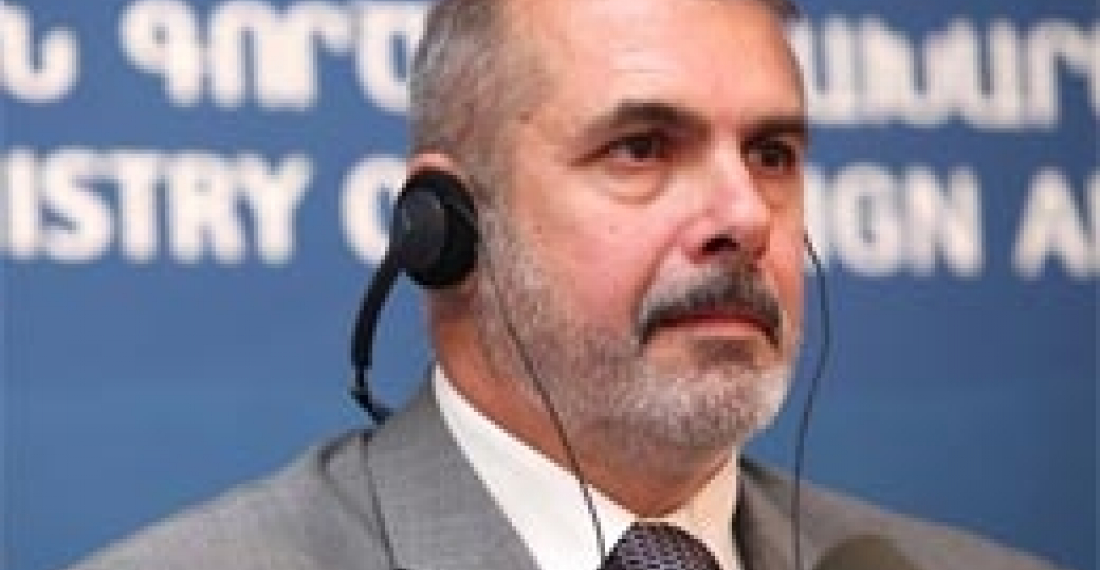Today President of Armenia Serzh Sargsyan received the EU Special Representative for the South Caucasus and the crisis in Georgia Philippe Lefort.
According to the press service of the Armenian President, the parties discussed issues pertaining to Armenia-EU relations and development of cooperation, the current stage of the NK peace process and the situation after the release of the Azeri murderer Ramil Safarov and the response of the international community to that incident.
Serzh Sargsyan expressed gratitude to various countries, different international organizations, including a number of European structures for the declarations on unequivocal and stern condemnation of the release and glorification of the murderer Safarov. At the same time, President Sargsyan assessed as unacceptable and incomprehensible some so called "balanced" while actually absolutely inappropriate responses to that hideous act. Glorification of the criminal by the Azerbaijani authorities, according to Serzh Sargsyan, calls for the unconditional denunciation, particularly by our EU
partners.
The EU Special Representative for the South Caucasus noted that after the meeting with the President of Armenia he will be leaving for Baku and expects clarifications from the Azerbaijani authorities regarding the aforementioned step.
Philippe Lefort underscored that EU condemns this step, which is detrimental for the mutual trust among the parties of the NK conflict and said that in the peace process EU supports the efforts of the OSCE Minsk Group.
At the meeting with the President of Armenia, the EU Special Representative spoke also about the development of EU cooperation with Armenia and readiness to assist Armenia in its efforts aimed at Eurointegration. He noted that works are already underway to organize a donor conference for Armenia with the participation of the representatives of the international financial institutions.
Armenian President meets with EU Special Representative for the South Caucasus and the crisis in Georgia
Armenian President meets with EU Special Representative for the South Caucasus and the crisis in Georgia







